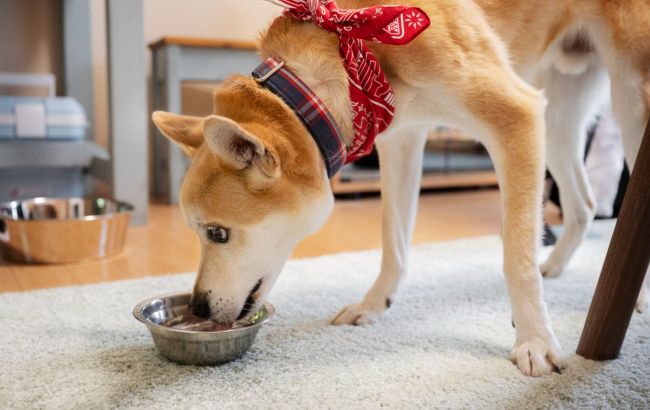Tips and tricks for introducing rice to your dog's meal plan - Veterinarian explains
 A veterinarian explains whether dogs can eat rice (photo: Freepik)
A veterinarian explains whether dogs can eat rice (photo: Freepik)
Owners of four-legged friends wish them nothing but good health. To achieve this goal, their diet must be carefully planned. People often wonder if dogs can eat rice, according to the American Kennel Club website.
Can dogs eat rice
Dogs can eat rice. It's important to remember that not all rice is equally beneficial for your pet.
Veterinarians may prescribe rice to animals with stomach disorders, as it is easily digestible, quick to prepare, and contains little fiber.
Such a soft diet allows animals to recover quickly after diarrhea.
Rice can also be included in dog food.
Brown rice is never prescribed to dogs with gastrointestinal problems.
Sick dogs need starch found in white rice. However, white rice has a higher glycemic index than brown rice.
Brown rice is harder for dogs to digest because it is less processed and contains the seed coat. However, this is where the nutrients are stored.
Veterinarian Carly Fox explained that white rice lacks this coat, making it less nutritious.
Carbohydrates, along with proteins and fats, are an important part of a dog's diet. Like humans, excessive carbohydrate consumption can lead to weight gain in dogs.
How often can dogs eat rice
Rice is not a natural food for dogs. It has been shown to cause stomach upset and other digestive problems. Dogs can also become dependent on rice and stop eating regular dog food.
This cereal should be given to dogs as a supplement to their diet no more than two or three times a week.
Rice does not contain the necessary nutrients for your dog to grow and stay healthy.
When preparing rice for your pet, it should be boiled in water without adding any spices, salt, or seasonings that could cause stomach upset or even be toxic. However, consult a veterinarian before introducing rice into your pet's diet.
This material is for informational purposes only and should not be used for medical diagnosis or self-treatment. Our goal is to provide readers with accurate information about symptoms, causes, and methods of detecting diseases. RBС-Ukraine is not responsible for any diagnoses that readers may make based on materials from the resource. We do not recommend self-treatment and advise consulting a doctor in case of any health concerns.

